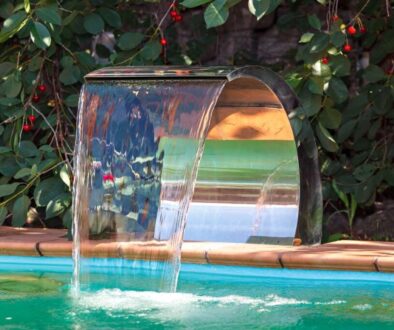The Importance of Safety in Pool Route Operations
Pool route operators play a vital role in keeping communities safe and healthy by maintaining clean and sanitized swimming pools. However, this essential work comes with inherent risks. Prioritizing safety in all aspects of pool route operations is not just a moral imperative, but also crucial for the well-being of technicians, property owners, and the overall success of the business.
Introduction
This article will delve into the critical importance of safety in pool route operations. We'll explore key safety hazards, discuss essential safety protocols, and highlight the benefits of a robust safety culture within a pool route company. By understanding and implementing effective safety measures, pool route operators can minimize risks, protect their teams, and ensure the long-term sustainability of their businesses.
Common Hazards in Pool Route Operations
Pool route operations present a unique set of safety challenges. Some of the most common hazards include:
- Chemical Hazards: Exposure to chlorine, acids, and other pool chemicals can cause serious health problems. Improper handling, storage, and disposal of chemicals pose significant risks.
- Physical Hazards:
- Slip and Falls: Wet pool decks, ladders, and equipment create a high risk of slips and falls.
- Drowning: While unlikely during routine maintenance, the possibility of accidental drowning remains a concern.
- Musculoskeletal Injuries: Repeated lifting, bending, and reaching can lead to back injuries, strains, and sprains.
- Traffic Hazards: Driving between pool sites, often in varying traffic conditions, increases the risk of accidents.
- Electrical Hazards: Working around electrical equipment, such as pool pumps and heaters, requires careful attention to prevent electrocution.
- Weather Hazards: Extreme heat, cold, rain, and storms can create unsafe working conditions.
Implementing Effective Safety Protocols
A robust safety program is essential for mitigating these risks. Here are some key safety protocols that all pool route operators should implement:
- Chemical Safety:
- Proper Storage: Store all chemicals in designated, secure areas away from heat and direct sunlight.
- Safe Handling: Use proper personal protective equipment (PPE) when handling chemicals, including gloves, goggles, and aprons.
- Accurate Measurements: Always measure and add chemicals accurately to avoid over- or under-dosing.
- Emergency Procedures: Have clear procedures in place for chemical spills and emergencies.
- Physical Safety:
- Non-Slip Footwear: Ensure all technicians wear non-slip shoes to minimize the risk of falls.
- Proper Lifting Techniques: Train technicians on proper lifting techniques to prevent injuries.
- Pool Entry and Exit: Use ladders and provide adequate support when entering and exiting pools.
- Regular Equipment Inspections: Inspect and maintain all equipment regularly to ensure it is in safe working order.
- Traffic Safety:
- Vehicle Maintenance: Ensure vehicles are properly maintained and inspected for safety.
- Defensive Driving: Train technicians on defensive driving techniques to minimize the risk of accidents.
- Distraction-Free Driving: Prohibit the use of cell phones while driving.
- Electrical Safety:
- Lockout/Tagout Procedures: Implement lockout/tagout procedures when working on electrical equipment.
- Ground Fault Circuit Interrupters (GFCIs): Use GFCIs on all electrical outlets.
- Regular Electrical Inspections: Have qualified electricians inspect electrical systems regularly.
- Weather Safety:
- Monitor Weather Conditions: Monitor weather forecasts and adjust schedules accordingly.
- Avoid Working in Severe Weather: Do not work during thunderstorms, heavy rain, or high winds.
- Emergency Preparedness:
- Develop Emergency Response Plans: Create and regularly review emergency response plans for various scenarios.
- First Aid and CPR Training: Ensure all technicians are trained in first aid and CPR.
- Access to Emergency Contacts: Maintain a list of emergency contacts, including local authorities and medical professionals.
Fostering a Strong Safety Culture
A strong safety culture is more than just implementing policies and procedures. It requires a commitment from everyone within the organization. Here are some key elements of a strong safety culture:
- Leadership Commitment: Leaders must demonstrate a strong commitment to safety by actively participating in safety initiatives and setting a positive example.
- Employee Involvement: Encourage employees to actively participate in safety discussions, identify hazards, and suggest improvements.
- Regular Safety Training: Conduct regular safety training sessions to reinforce safety protocols and address new hazards.
- Open Communication: Create an open and supportive environment where employees feel comfortable reporting safety concerns without fear of reprisal.
- Recognition and Rewards: Recognize and reward employees for their commitment to safety.
- Continuous Improvement: Regularly review and update safety protocols based on best practices and lessons learned.
The Benefits of a Strong Safety Culture
Investing in safety has numerous benefits for pool route operators:
- Reduced Injuries and Accidents: A strong safety culture can significantly reduce the number of workplace injuries and accidents.
- Improved Employee Morale: When employees feel safe and valued, they are more engaged and productive.
- Enhanced Reputation: A company with a strong safety record builds a positive reputation within the community.
- Reduced Costs: Accidents and injuries can be costly. A strong safety culture can help to minimize these costs.
- Increased Compliance: Adhering to safety regulations can help to avoid costly fines and penalties.
Conclusion
Prioritizing safety is not just a legal requirement; it is a fundamental aspect of responsible business practices. By implementing effective safety protocols, fostering a strong safety culture, and continuously striving for improvement, pool route operators can create a safer and more productive work environment for their teams while ensuring the long-term success of their businesses.
Remember, safety is an ongoing journey, not a destination. By continuously evaluating and refining safety practices, pool route operators can create a safer and more successful future for themselves and their employees.



